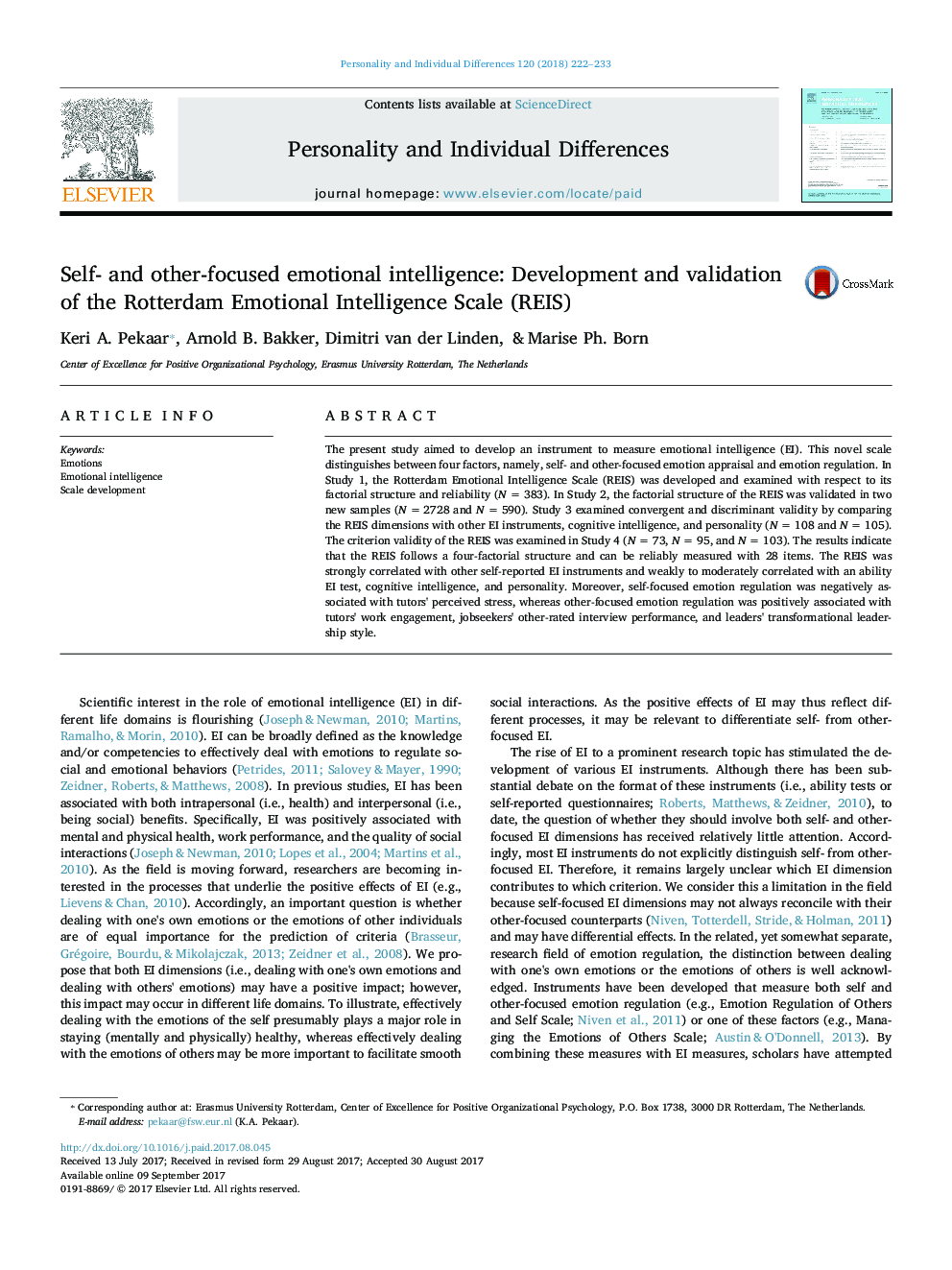| Article ID | Journal | Published Year | Pages | File Type |
|---|---|---|---|---|
| 5035539 | Personality and Individual Differences | 2018 | 12 Pages |
â¢A scale is developed to measure self- and other-focused emotional intelligence.â¢Self- and other-focused EI dimensions are differentially related to criteria.â¢Other-focused emotion regulation seems to contribute most to work-related outcomes.
The present study aimed to develop an instrument to measure emotional intelligence (EI). This novel scale distinguishes between four factors, namely, self- and other-focused emotion appraisal and emotion regulation. In Study 1, the Rotterdam Emotional Intelligence Scale (REIS) was developed and examined with respect to its factorial structure and reliability (NÂ =Â 383). In Study 2, the factorial structure of the REIS was validated in two new samples (NÂ =Â 2728 and NÂ =Â 590). Study 3 examined convergent and discriminant validity by comparing the REIS dimensions with other EI instruments, cognitive intelligence, and personality (NÂ =Â 108 and NÂ =Â 105). The criterion validity of the REIS was examined in Study 4 (NÂ =Â 73, NÂ =Â 95, and NÂ =Â 103). The results indicate that the REIS follows a four-factorial structure and can be reliably measured with 28 items. The REIS was strongly correlated with other self-reported EI instruments and weakly to moderately correlated with an ability EI test, cognitive intelligence, and personality. Moreover, self-focused emotion regulation was negatively associated with tutors' perceived stress, whereas other-focused emotion regulation was positively associated with tutors' work engagement, jobseekers' other-rated interview performance, and leaders' transformational leadership style.
